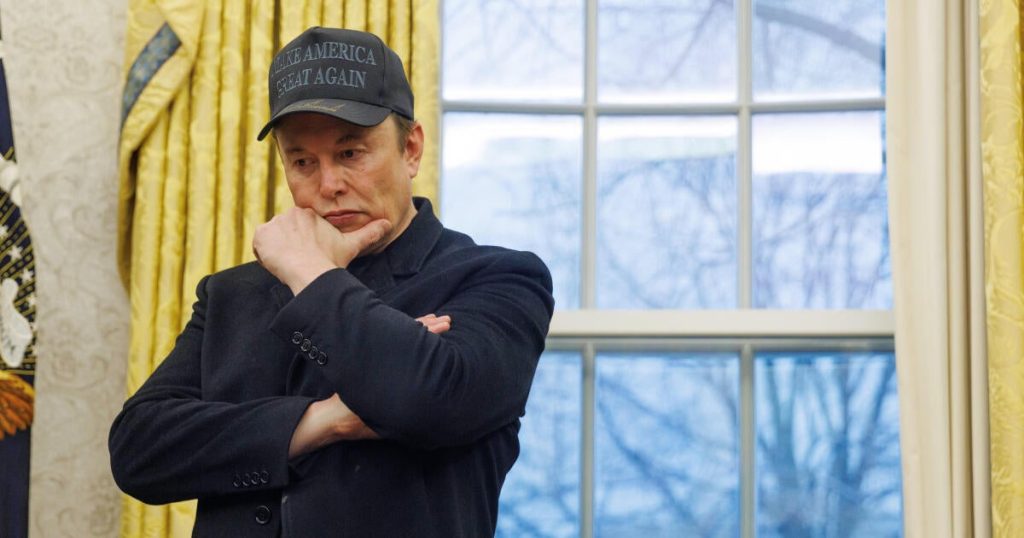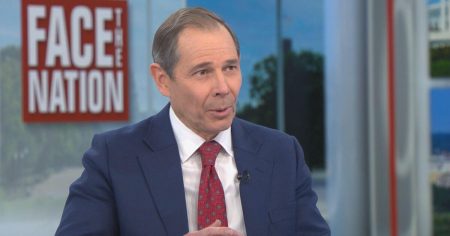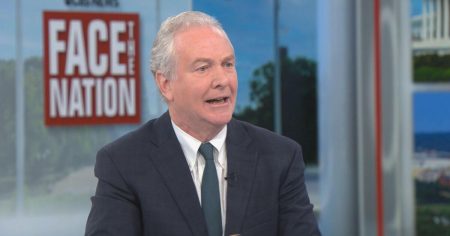Introduction to the Department of Government Efficiency and Its Mission
The Department of Government Efficiency (DOGE), led by Elon Musk, has been at the center of a controversial effort to slash jobs and contracts across federal agencies in the name of cost savings. After weeks of delays, DOGE finally released its long-awaited "wall of receipts," a documentation of the savings it claims to have achieved through these cuts. However, a review by CBS News revealed significant discrepancies in the accounting, with the initial savings figures being overstated by billions of dollars. This revelation has cast doubt on the accuracy of DOGE’s claims and raised questions about the true impact of its actions.
The $8 Billion Accounting Error and Its Implications
One of the most glaring errors in DOGE’s accounting involved a contract that was initially reported as being worth $8 billion but was later revealed to be only $8 million. This single mistake effectively halved the total savings DOGE claimed to have identified, bringing the figure down to $8.4 billion. The contract in question was for the Homeland Security’s Immigration and Customs Enforcement (ICE) Equal Opportunity Employment Office, and it was related to "Program and Technical Support Services for the Office of Diversity and Civil Rights." This error highlights a broader issue with how DOGE has approached its cost-cutting measures, often prioritizing speed over accuracy.
Misunderstanding of Indefinite Delivery, Indefinite Quantity (IDIQ) Contracts
DOGE’s errors extend beyond the ICE contract. The team also misinterpreted the nature of "indefinite delivery, indefinite quantity" (IDIQ) contracts, which are standard government funding vehicles designed to set a ceiling for larger projects. Experts explained that these contracts allow multiple contractors to bid on specific tasks within a set budget. However, DOGE overstated its savings by claiming the full ceiling amount for certain IDIQ contracts, such as the USAID EVAL-ME II IDIQ, which had a ceiling of $655 million. In reality, the government spent only about $400 million over four years for 44 sub-contracts under this IDIQ, and further spending is expected to be minimal.
The Broader Context of DOGE’s Actions and Their Consequences
DOGE’s efforts to cut costs have been a hallmark of President Trump’s early days in office, with the team embedded in federal agencies to identify areas for reduction. While the president has praised DOGE’s work as a necessary step to eliminate waste, critics argue that the team’s approach has been hasty and lacking in transparency. The consequences of these cuts are already being felt, with hundreds of federal workers losing their jobs and critical programs being scrapped. For instance, a Department of Education project that was set to provide $13 million to support over 1,070 youth with disabilities across 13 school districts was canceled. Similarly, USAID programs aimed at promoting public health initiatives, such as voluntary medical male circumcision in Mozambique, have been halted, despite their proven effectiveness in reducing HIV transmission.
Criticism and Scrutiny of DOGE’s Methods
The errors in DOGE’s accounting have drawn sharp criticism from experts and watchdog groups. Scott Amey, general counsel for the nonpartisan Project on Government Oversight, suggested that DOGE may be more interested in inflating its savings figures than in providing accurate reporting. The New York Times first reported the $8 billion accounting error, noting that the contract’s value had been corrected from $8 billion to $8 million in January of this year. The contracting company, D&G Solutions, confirmed that the initial figure was the result of an accounting error and that $3.8 million of the contract had already been spent. While DOGE has since corrected this particular error, the link provided on its website still points to the original $8 billion figure, raising further questions about the transparency of its reporting.
Defense, Corrections, and the Path Forward
In defense of DOGE, Elon Musk has acknowledged that the team is not perfect and that mistakes are inevitable. During an Oval Office appearance on February 11, Musk stated, "Nobody’s going to bat a thousand. We will make mistakes, but we’ll act quickly to correct any mistakes." While this acknowledgment is a step in the right direction, it does little to address the broader concerns about the accuracy of DOGE’s savings claims and the impact of its cuts on federal programs and workers. Excluding the USAID cuts, the total savings from other agencies appear to total just $2 billion, a fraction of the federal budget. Given that Musk has stated his goal of trimming $2 trillion from the budget, DOGE has a long way to go to achieve even a fraction of this target.
The cuts made by DOGE have also raised ethical questions about the prioritization of certain programs over others. Many of the contracts canceled by DOGE were selected based on language referencing diversity, equity, and inclusion, reflecting a broader shift in the Trump administration’s approach to federal spending. While some may view these cuts as a necessary step toward reducing waste, others argue that they come at a significant cost to programs that provide vital services to vulnerable populations, both in the U.S. and abroad. As the government continues to grapple with the fallout from DOGE’s actions, one thing is clear: the pursuit of efficiency must be balanced with a careful consideration of the consequences for those who rely on these programs.















